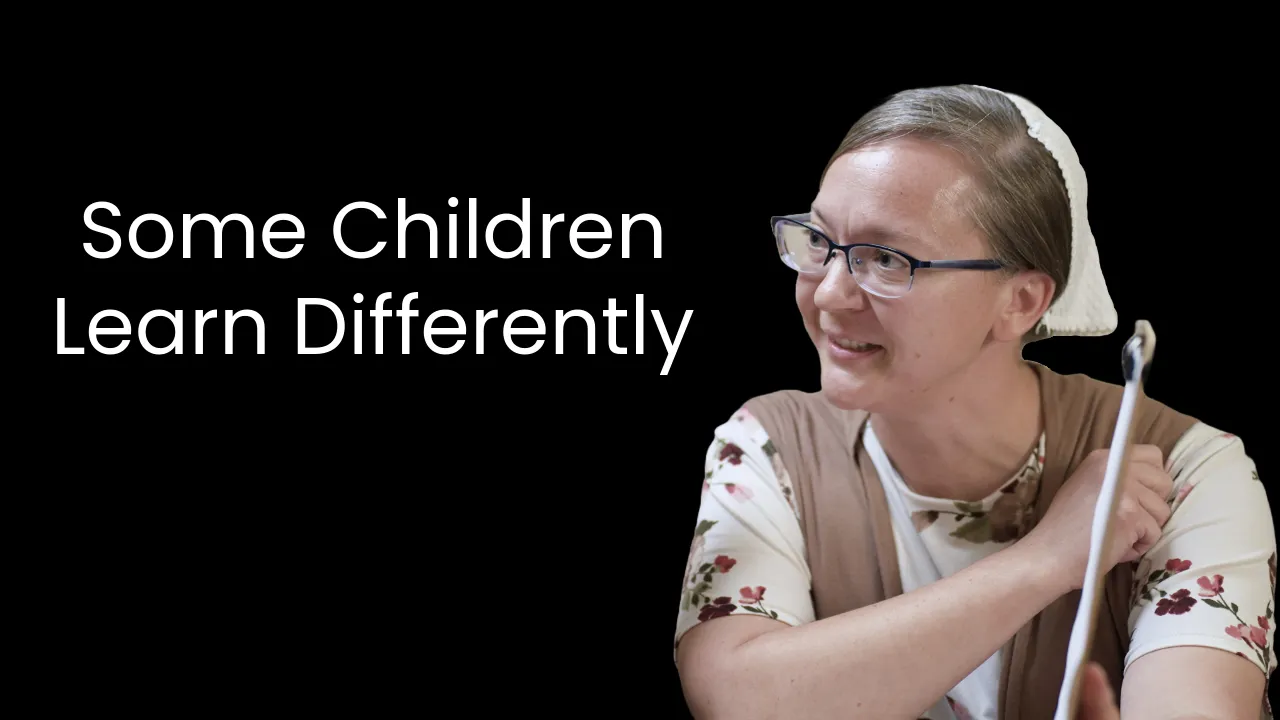Why Graduate From Four Colleges
The following is taken from an interview with Kyle Stoltzfus conducted by Reagan Schrock.
When I think about being a student of four different colleges, I sometimes feel this wave of shame. There are stereotypes which imply that people who keep going to college will become perpetual students who are of no earthly good after a while. As much as I’d like to say that I had big ideals about having a college education and of hoping to end up here at Faith Builders on staff, that’s just not the reality. So why would somebody attend four colleges?
For me—it was because I couldn’t build mini barns. Coming out of high school and trying to enter the workforce, I had some ideas about where I wanted to be headed, but they were vague and poorly defined. I was a decent student and knew something about computers, but I had very few manual skills. I think a lot of people coming out of high school go for blue collar jobs that are immediately available to them; a low-level job where you apply and get the position. My application went to a business called Yoder Barns. I applied, got the job, and became a laborer. I guess some people can learn carpentry faster because they are more skilled or have background in it. However, I soon realized that I’m actually rather bad at building mini barns. I would arrive early and faithfully to work every day, but I would look at the time clock, time card in hand, and be absolutely miserable. I knew I would punch in, go out on the floor, and hate every moment of the day. I had a gnawing ache of sadness and depression. The ache goaded me to do something different. I needed a springboard and that’s what pushed me toward college.
My first experience came through Penn College where I earned an Associate’s Degree in computer science. They offer “degrees that work”. They are a skill focused school and offer technical degrees. After earning my degree, I began to see other possibilities besides just manual trade skills. Going to school allowed me to apply for a job that I otherwise wouldn’t have even considered because it would have been out of my league. I got the job, moved two hours away from my home area, and began to apply the skills I had gained. Skills developed in college are not designed to cover everything. But they gave me the confidence I needed to settle into a new job.
After starting that job I met my wife, Marlene, who was teaching school. Although we were making pretty good money, working long hours, and enjoying the meaningful work our skills-focused jobs gave to us, we still felt unfulfilled. What was the significance of our work? We were beginning to feel kind of burned out around the margins. My wife and I knew how to work, but how should we work with meaning? How could we learn to serve people that we care about and contribute something into their lives? These considerations brought us to Faith Builders. They had a faithful view of life, more than just a view of meeting the bottom dollar or getting to the American dream. I studied at Faith Builders for two years, and was then asked to come on staff. The two-year degree at Penn College gave me technical skills and an occupation. Faith Builders helped me to find meaning in the work and answered the question of how I could participate more fully in God’s Kingdom with my work.
The third part of my education, a bachelor’s degree from Liberty University online, paved the way for graduate school. This was the progression in my life which has prepared and provided for meaningful work and service. When asked if I would recommend these steps for others, or if college should be pursued at all, one could consider the question, “Should I continue to grow, develop, and change?” The answer is yes, absolutely. Everybody needs to do that or else life will quickly become stale and stagnant. Regardless of the type of field a person is interested in getting into−whether it is carpentry, the manual trades, etc.−you are going to need to grow, change, and find sources of input to make that happen.
Would I recommend that someone go to four colleges or go to college at all? No, for two reasons. First, the skills which people bring to life around them are different. Some people are more suited to do manual labor and that is necessary and good. Second, anyone who goes to college in an attempt to elevate themselves above the common laborer probably has a defective view of schooling. There are many different types of intelligences. Some kinds of intelligence, such as being a farmer, are more applied. That doesn’t make the work less intelligent; it’s just a different kind. People who go to college may be more gifted in abstraction and being able to spin yarns and theory. Their education isn’t really complete until they develop something of a very gentle contempt, perhaps, for those abstract abilities as they recognize the limitations.
A farmer needs a diversity of skills. He needs to care for cows, take care of his plants, be a diesel mechanic, and a bookkeeper. He needs all of these various skills, and it takes a certain kind of person to do that well. That person may not be well suited for academics, but the academic person, if you put him in that same situation, would probably fumble. Superficially, one incentive to attending college is that having a degree will allow for a higher pay scale−if you can find a job after graduating. We might also think that a college experience can help us find what is authentic about ourselves. But you’re probably going to be disappointed if you look at going to school or landing the perfect job as “finding that core identity”. There’s just more to it than that. These are relatively superficial reasons to attend college. So we must get down to the questions of real value. Do I want to do this job because I want to grow in my capacities? Why do I want to enlarge my abilities as a person? Going to college not only helps us to gain particular working skills, but also provides a different way of looking at the world. You come out on the other end of college training and see new possibilities in the world that you didn’t see before. The possibility may be as simple as saying, “Oh, you’re having trouble with making sense of your finances. I have tools and training that can help you sort that out.” You are seeing possibilities on the other side of those muddled up finances. It begins to change how you see the world. When things break, you see the possibility of a system that works again, such as the possibility of health in patients who are really sick. The possibilities begin to bring equipped people’s imaginations alive. With a college education, they now have skills which make a possibility of something previously out of reach.
This is all good motivation for going to college, but, for the Christian, we can go even deeper than that. The statesman Abraham Kuyper is quoted as saying, “There is not one square inch in the whole domain of our human existence over which Christ, who is Sovereign over all, does not cry, ‘Mine!’”1 This call of Christ extends into that space of imagination where we begin to see possibilities in the world, as well as into the disciplines a person gains from college. It begins to change and inform how they see the possibilities.
There is talk in today’s world about the sacred and the secular. The majority of trades that people learn in college—whether nursing, mathematics, or technical skills—are all chunked off in the realm of the secular. What this really mean, though, is that these trades haven’t been influenced yet by the Christian imagination. In reality, they have already been claimed. This is what Kuyper was referencing when he spoke of Jesus laying claim to everything. “Mine!” The task of the Christian, then, is to see those possibilities as the raw material they really are. Seeing them through the lens of their education, claim them for Christ, and then rehabilitate or reform them. What is a Christian way of doing nursing? What is a Christian way of doing computer science? What is a Christian way of doing agriculture? There are incredible opportunities out there for this kind of reform because all of these kinds of work have been set apart as secular, when really it needs to be reclaimed for Christ. College allows you to have access to both worlds, spiritual and secular, and to begin to redeem and reclaim them together for Christ.
1Bratt, James D. Abraham Kuyper: a Centennial Reader. W.B. Eerdmans, 1998. pg. 488 Return to context⬏








Leave a Reply